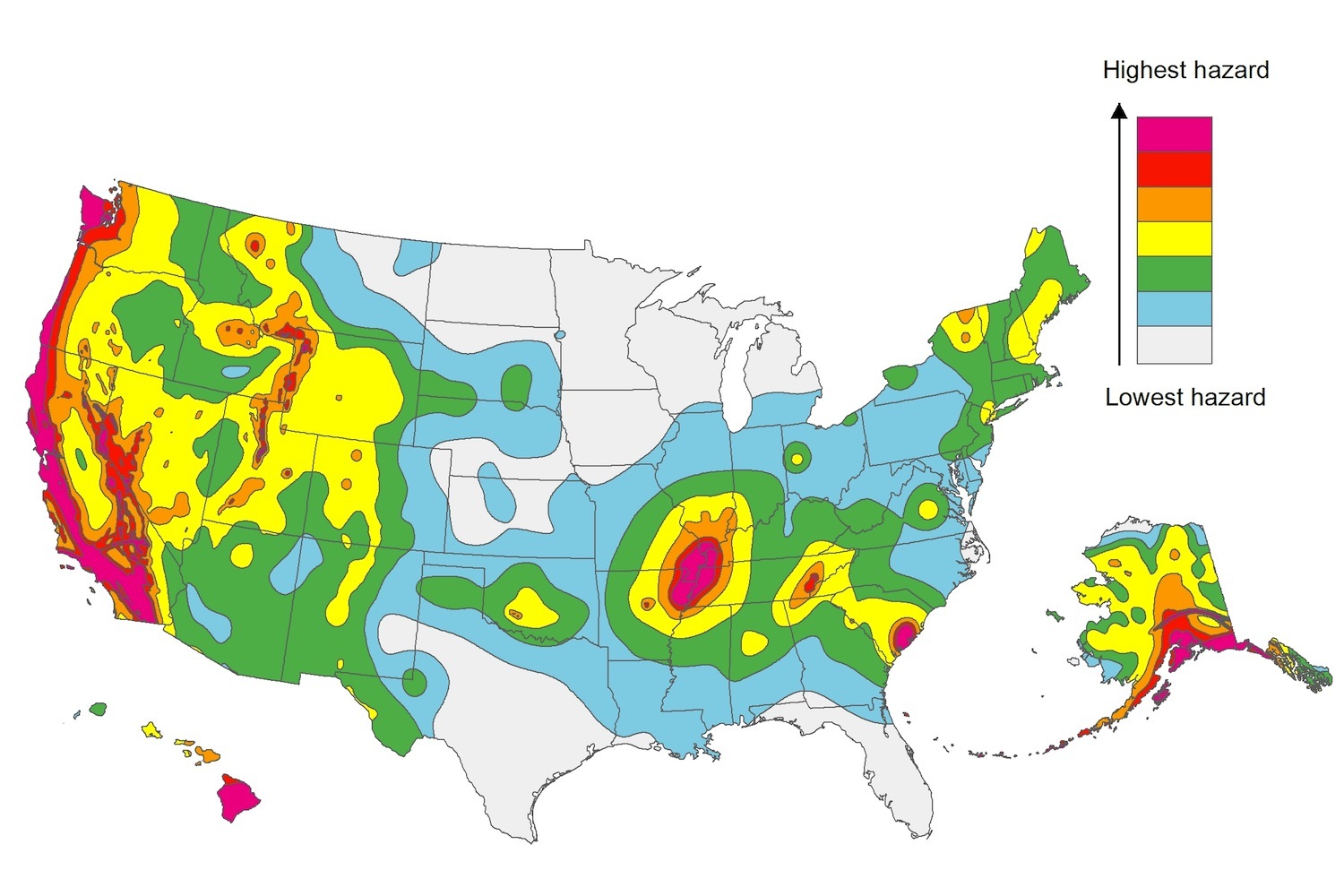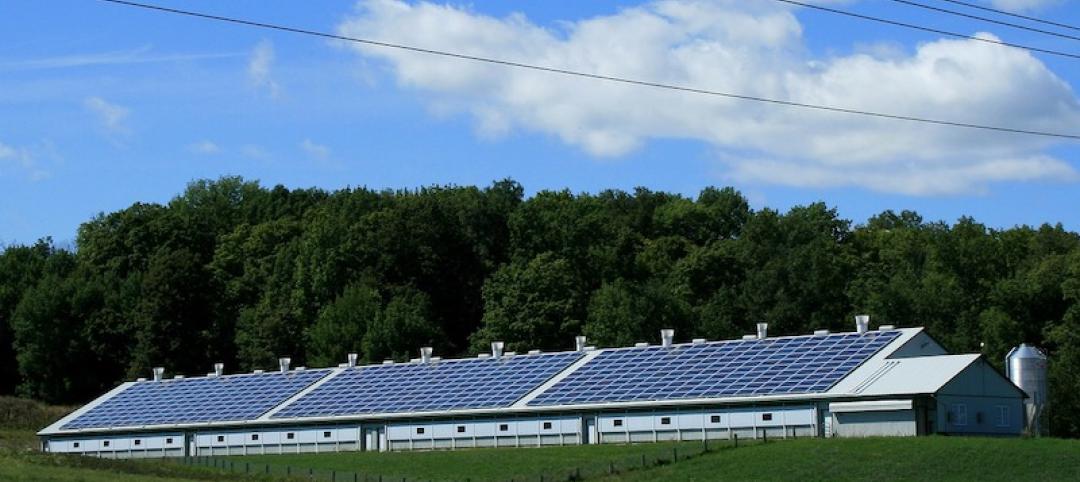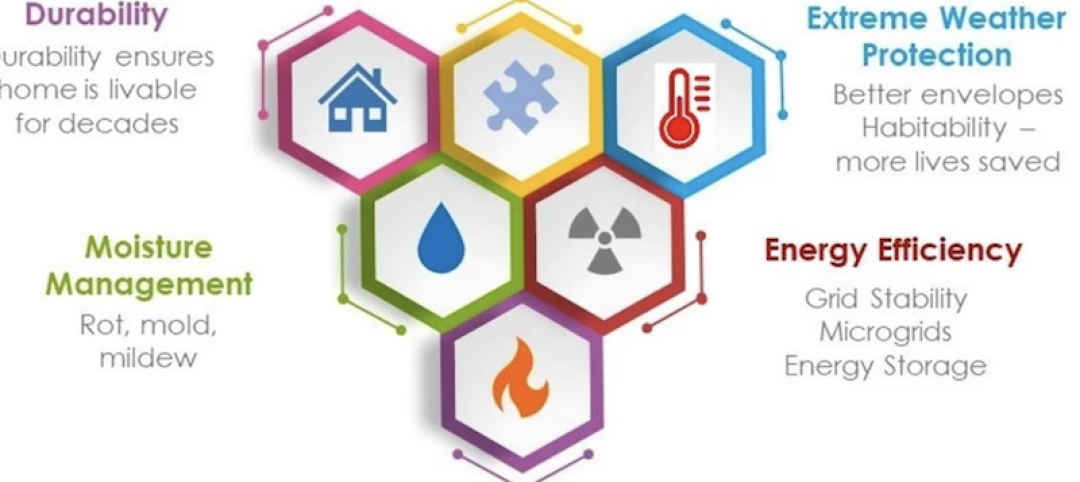The U.S. Geological Service recently released an update of U.S. National Seismic Hazard Maps that reflect the latest analysis of where future earthquakes will occur, how frequently they may occur, and their strength.
While all states have some potential for earthquakes, 42 of the 50 states have a reasonable chance of experiencing damaging ground shaking from an earthquake in the next 50 years. Sixteen states have a relatively high likelihood of experiencing damaging ground shaking. These states have historically experienced earthquakes with a magnitude 6 or greater. The hazard is especially high along the west coast, intermountain west, and in several active regions elsewhere such as near New Madrid, Mo., and near Charleston, S.C.
The eastern U.S. has the potential for larger and more damaging earthquakes than considered in previous maps and assessments. This finding is due to what scientists learned following the magnitude 5.8 earthquakes that struck Virginia in 2011. It was among the largest earthquakes to occur along the east coast in the last century, and indicated that even larger events in the region are possible.
The maps are used in risk analyses calculated using factors such as population levels, building exposure, and building construction practices. These assessments are used for establishing building codes, in the analysis of seismic risk for key structures, and in determining insurance rates. They can also aid emergency preparedness plans, and private property decisions such as re-evaluating one’s real estate and making it more resilient.
(http://www.usgs.gov/blogs/features/usgs_top_story/new-insight-on-the-nations-earthquake-hazards/)
Related Stories
Codes and Standards | Oct 12, 2020
Guidance offered for K-12 schools to support students with asthma
Green purchasing policies for cleaning, filters, furniture and other products encouraged.
Codes and Standards | Oct 7, 2020
More energy efficiency programs are encouraging zero-energy projects
At least 20 programs for new construction, major renovations emerge.
Codes and Standards | Oct 6, 2020
LEED, GBCI rating systems spur resilience-enhancing strategies
Expanded programs, resources address impact of climate change.
Codes and Standards | Oct 6, 2020
International Code Council to hold inaugural online education event
Week-long ICC Learn Live will include panel conversations, keynotes, and breakout sessions around key topics in building safety.
Codes and Standards | Oct 5, 2020
Guides addressing fenestration anchorage updated
First update to decade-old technical documents released.
Codes and Standards | Oct 1, 2020
Deadline extension for LEED 2009 project certifications
Delivery timeline delays due to COVID-19 pandemic prompt action.
Codes and Standards | Sep 29, 2020
New drinking water standard criteria further restricts lead leaching in plumbing products
Tightened standard applies to endpoint devices that dispense drinking water, and other plumbing components
Codes and Standards | Sep 29, 2020
Groups sue CDC over eviction moratorium
Natl. Apartment Assn. and New Civil Liberties Alliance want hearing by October.
Codes and Standards | Sep 24, 2020
Benefits of building enclosure commissioning include reduced costs
Savings achieved in less rework and fewer and shorter punch lists.
Codes and Standards | Sep 23, 2020
Intl. Code Council aims to stay ahead of new tech, efficiency trends, and resiliency
Passive survivability, social resiliency, and community health among the goals.

















